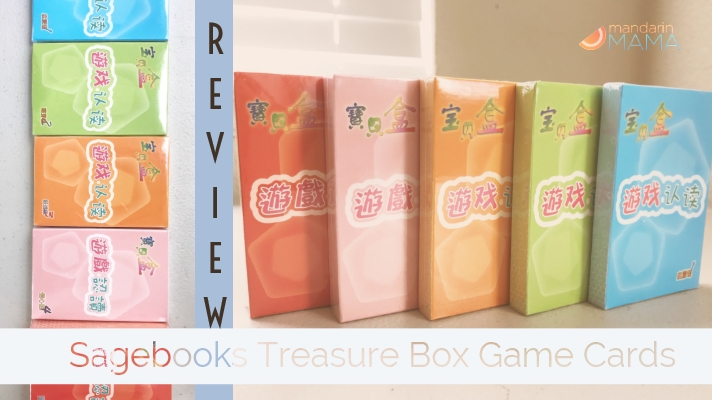 **This piece was originally part of a series of posts. You can find the updated version, along with exclusive new chapters, in the ebook, (affiliate link) So You Want Your Kid to Learn Chinese.
**This piece was originally part of a series of posts. You can find the updated version, along with exclusive new chapters, in the ebook, (affiliate link) So You Want Your Kid to Learn Chinese.
I confess: this is a somewhat misleading title since truthfully, you really can’t force your child to speak Chinese if they really don’t want to – at least not without some major relational and communication costs.
Also: this article may be less useful to folks who are in non-heritage and/or non-speaking families. Mostly because if you don’t speak Chinese, your opportunities for your child to speak Chinese are limited and you have to get creative with your methods since it’s not as if you can verify that they are indeed speaking Chinese, let alone correctly.
Plus, it’s possible your child might be more excited to either “show off” their Chinese since the response to their speaking Chinese (especially if they are white or not ethnically Chinese) will likely be amazement and praise due to the novelty and not actual ability whereas if your child does have Chinese heritage, the expectation (however unfair) will be that they should speak Chinese anyway so unless they are fluent or native level, there really isn’t anything marvelous about it (even though it really is) and quite frankly, why isn’t their Chinese better than it is – don’t they care about their heritage at all?
Furthermore, many ethnically Chinese kids often do not want to speak Chinese because everyone else speaks English and why should they be compelled to speak a language that is not their native tongue? And besides, everything is in English anyway because we’re in America and it’s really hard and seriously, no one speaks Chinese and please just stop making them try and communicate in a language in which they are hamstrung by their lack of vocabulary and comprehension and ability.
Incidentally, this is not a bitter rehash of White Sense of Fluency (WSOF) or if you prefer, American Sense of Fluency (ASOF). Just a statement of fact in how our world works right now. Also, I readily concede that just because your child is not ethnically Chinese and also learning Mandarin does NOT guarantee that they will be excited about speaking Mandarin. In fact, they might experience similar objections their ethnically Chinese counterparts experience. Really, it just depends on your kid.
So, tl;dr: You can’t force your kid to speak Chinese – at least not without major consequences and fractures in your relationship. Personally, I don’t think that is worth causing major damage in the parent/child relationship.
However, with that said, I often think that parents (especially Chinese speaking parents) give in too early and too easily with their kids. This is not to judge you if you are one of the parents who have given up. After all, it’s hard to be constantly waging a never-ending battle to get your kid to speak Chinese. It’s hard to consistently speak Chinese (especially if you’re not all that great at it in the first place – or used to speaking Chinese) and require them to speak it back.
Truthfully, I’m not you or your kid. It might only seem as if it was too early or too easily from my outsider’s perspective. I have no idea. And honestly, I have no idea if any of my suggestions will work for you (or for non-Chinese speaking parents, for that matter).
So really, this is all just a lengthy caveat and YMMV (although if you’re a long time reader, you’ll note that this is also one of my briefer disclaimers). Also also: these suggestions might work better when the kids are younger. Anyhow, here then, are some of my suggestions for how to get your kid to speak Chinese:
1) Decide if you even want your kid to speak Chinese.
No, seriously.
It seems like such a bullshit answer but really, is this what you really want? Because remember: Chinese fluency requires intention.
So, do you want your kid to speak Chinese? And if so, how fluently? And if fluently, the more fluently you want them to speak, the more work you will have to do. How much effort is too much? And at what point will you say, “This isn’t worth it?”
My two cents? (Alright, with the amount of words I’m outputting, it’s more like two dollars.) If it is to the point where you and your child are fighting all the time, your kid doesn’t even want to speak or communicate with you, or your child doesn’t even want to touch anything Chinese with a ten foot pole, maybe it is time to either pull back on the Chinese speaking thing or reconsider your tactics.
Healthy relationships with your children trumps Chinese fluency any day of the week.
Also, if you decide after reading this post that you don’t particularly want to put in the effort of having your kids speak Chinese, that’s okay. They will still go on to have perfectly good, complete, and happy lives. Plus, their Chinese journey isn’t necessarily over. There is always college or after college. I mean, seriously. As long as they’re alive, there is still a chance.

2) Do not respond to your children unless they speak Chinese.
Obviously, please use common sense. If your child is injured and calling for help in English, that perhaps isn’t the best time to insist on them asking for help in Chinese.
When I was little, I didn’t realize my parents could even speak English (they are Taiwanese immigrants). As a result, I had little choice but to speak to them in Chinese because otherwise, how would they understand me?
As I got older, my parents refused to respond to me unless I spoke to them in Chinese. I quickly got the picture that if I wanted anything at all from my parents, I would have to ask for it in Chinese. When I got into my teens, I have no idea what language we communicated in. It was likely a motley of Chinese and English and sometimes, Chinglish.
There are variations of this method, of course.
Until recently, I told my children in Chinese that I didn’t understand them. A blatant lie since I obviously speak and understand English just fine. However, four year old Gamera now calls me out on this because of course. She tells me that I understand English because I can speak it. I’m just grateful she humored me as long as she did.
Six year old Cookie Monster is much kinder and has never commented on my obvious falsehood. He just switches to Chinese and repeats what he just said (although he does sometimes require a few reminders before he switches).
Now, I have started to either ask them to tell me in Chinese and if I get push back, I say that I want them to practice their Chinese because it’s really easy to forget and lose their Chinese if they don’t. It helps that I have first hand experience with losing Chinese language skills so I use myself as an example. And since Gamera enjoys being superior to me, she likes to remind me how I used the Chinese word for “sticker” when I should have used “tape.” This tact has been successful thus far.
When they get to the point where they don’t care about losing their Chinese, I may go to my parent’s method of ignoring them until they do speak Chinese.
3) Create a Chinese Language Ecosystem (CLE) as much as possible.
It is difficult to speak Chinese if you do not have the vocabulary to support what you want to say or the comprehension to understand what someone is saying to you. The only way to boost vocabulary and comprehension is to increase Chinese exposure.
To that end, your best bet is to create as comprehensive CLE as possible. Many of the remaining suggestions expand upon things you can use when creating your CLE. (Protip: maximize your car time with the kids. You have a captive audience. I constantly have Chinese songs and stories playing in the car. If you have a DVD player in the car, you can have them watch movies or shows in Chinese.)
How do you create a CLE? In short, as much as possible:
– Speak to your kids in Chinese
– Have them consume Chinese media (either original works or Chinese translations) by watching Chinese YouTube videos/DVDs/movies; listen to Chinese songs/stories; read Chinese books (I often translate simple children’s board books regardless of the book’s written language); use apps in Chinese; etc.
– Tell stories in Chinese
– Attend Chinese playdates/playgroups/classes/extracurricular classes/cultural programs
– If you need childcare, hire a Chinese speaking au pair/nanny/day care
– Travel/Extended stays overseas in Chinese speaking countries
For more in-depth explanation on what a CLE is and entails, I highly recommend Oliver Tu’s excellent post about the CLE and its applications. Shoot, in general, just go to his blog and read everything he has written. His daughters are nine and twelve so he is much further along on this Chinese language journey – not to mention, incredibly successful. I pretty much just copy whatever he does or recommends.
4) Bribery.
In general, I would refrain from punishing your kids when they do NOT speak Chinese since that will cause a negative association with speaking Chinese. (I do, however, break this rule when my children start speaking predominantly English. I tell them if they do not speak in Chinese it is because they are watching too much English YouTube/media and I start pulling back their English media time and amp up their Chinese media time.)
I’m pretty sure bribery is self-explanatory.
Reward the behavior you want. In our house, I do not enforce our screen time limits if they are watching anything Chinese or are using Chinese apps.
5) Hire help.
If your Chinese isn’t up to snuff (or you just want more support), hire tutors/conversation partners/mother’s helpers/nannies/conversation only Chinese classes. Remember, the focus here is in speaking and conversational skills – not necessarily reading and writing skills.
Additionally, your children might respond in Chinese more willingly to people who they ONLY associate with Chinese speaking. Plus, children can often be evil and listen to or speak in Chinese with anyone except you, their parent.
6) Find Chinese speaking peers.
This one is a little more difficult because most kids will resort to speaking in English to each other since that’s the norm. Also, if your kids are really proficient in Chinese, the older your children get, the more difficult it will be to find peers with comparable Chinese levels unless they are recent immigrants. That, of course, brings about a different set of difficulties in terms of relatability, and the recent immigrant’s parents likely wanting their child’s English to improve more so than practicing their Chinese. Perhaps a bargain can be made.
7) Tell older siblings you need their help to teach their younger siblings Chinese.
In multi-child families, the eldest child usually has the best Chinese skills. (Not always, but usually. Also, sorry to my baby brother for ruining your Chinese.) Mostly, this is due to the fact that once the older child learns English, they will most likely speak to their siblings in English because it is easier for them, and as a result, their siblings will a) have far earlier English exposure and b) have far more English exposure in the household.
Some variations on this include: telling your older children that their younger sibling only understands Chinese or enlisting their help in preventing their younger sibling from losing their Chinese.
Whatever helps you promote speaking Chinese between your children. Personally, I think this is easier when the kids are small versus when they’re older and will require more sophisticated words.
8) Go overseas for camps, classes, or extended trips.
If financially feasible (because tickets, food, lodging, and tuition are not cheap and add up), consider going overseas. The focus at these camps will be to promote Chinese speaking – however you still run into the same problem of kids speaking mostly in English if the camp is catered to overseas Chinese. Another option would be to enroll your children in camps for local kids (but just know that there will likely be a huge communication barrier even if your child is really good at Chinese).
9) Encourage your kids to create performance art in Chinese.
Does your kid love Minecraft? My Little Pony? Singing? Acting? Writing? Whatever it is, encourage your kid to make videos/songs/music videos/fan vids/short stories/whatever in Chinese. This combines bribery (play all the Minecraft you want as long as it’s in Chinese), relevance (stuff they’re interested in), and narcissism (seeing their work shared on YouTube or amongst friends).
Plus, I’m sure there’s all sorts of educational theory on how this synthesizes language into different parts of their brain or something sciencey.
10) Use the time-honored tradition of Chinglish.
Allow your child to speak as much Chinese as possible and to sub in English if they do not know the words in Chinese.
Now, some folks object to this route entirely because they feel it either dilutes their efforts or gives their children a way to slack off and cheat. However, I am of the opinion that any Chinese is better than no Chinese and that many children (myself included) would rather be silent and not risk looking foolish than to try something in Chinese only to stall, grope around desperately for the right word, and then fail miserably.
Instead, allow your child to say in English the parts they don’t know in Chinese. Then, show them how to say the phrase or word in Chinese and have them repeat it. It now becomes a teachable moment and your child will have a better shot of remembering the new vocabulary because they needed the word versus some random word they have to memorize as part of a lesson.
Chinglish allows your kid to attempt to speak Chinese without losing too much face or the expectation of perfection. It can be freeing.
11) Have realistic expectations.
I wrote a long post about having realistic expectations for learning Chinese in general. This will likely be more along the same lines.
– Be reasonable.
– Learning new skills (especially a language as complicated as Chinese) requires time.
– If your child has limited exposure to Chinese, it isn’t really fair for you to expect that their spoken Chinese will be fluent.
– Even if your child can understand Chinese, if you do not encourage them reply to you in Chinese, they will never learn to speak Chinese with confidence or proficiency.
– If you try to make your child speak to you in Chinese but do not equip them with the appropriate vocabulary, they will still be unable to communicate with you to the level and nuance they would be able to in English.
My friend, Irish Twins, has a great analogy. Imagine that your children have two toolboxes, one Chinese and one English. You want your kids to build a house with only one of the toolboxes and you want them to use the Chinese toolbox. Unfortunately, the Chinese toolbox is tiny and only consists of a hammer, some nails, and a phillips head screwdriver. There is no way your kid can build a house of the same magnitude as they could with the fully equipped English toolbox.
– Unless you can predict the future, do not be too pleased with your child’s Chinese before they start any type of English school full time (be it daycare, preschool, Kindergarten, etc.). This is not to discount your hard work up until that point, but that is totally counting your chickens before they’ve hatched. For sure, the better your child’s Chinese is at this stage, the more set up for success you will be – but by no means is anything guaranteed.
Until your child starts English schooling, their English exposure will be limited and Chinese will have no competition. But once English schooling begins, that’s when the appeal, allure, and relevancy of English will encroach on their Chinese. (Not to mention social pressure to conform and be liked by their peers.)
Trust me. Unless you have an intentional plan of action, your child’s fluent Chinese will disappear faster than a blink of an eye.
Well, now that I’ve thoroughly depressed and overwhelmed us all, hopefully, I have mentioned a few things that can help in our long road to Chinese speaking fluency. I would love to hear your thoughts on what has or hasn’t worked for your family. Let me know in the comments.






